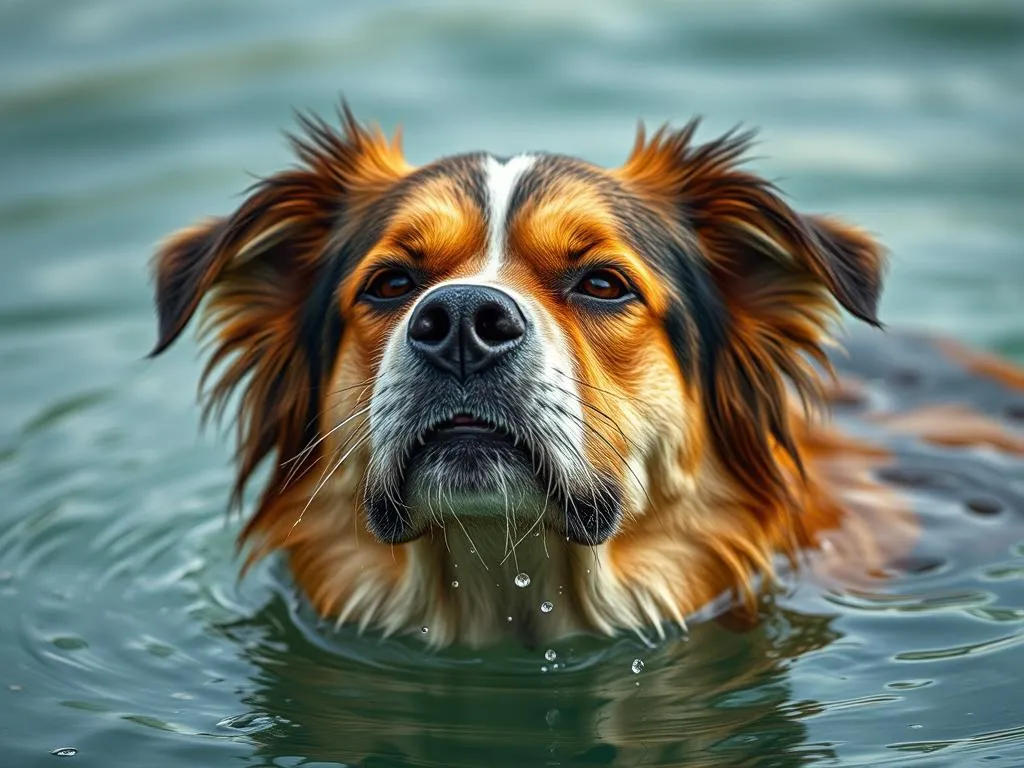
Introduction
Water intoxication is a serious condition that can affect dogs when they consume excessive amounts of water in a short period. It occurs when the balance of electrolytes in the dog’s body is disrupted, leading to potentially life-threatening complications. Understanding this condition is crucial for all dog owners, as it can happen quickly and sometimes without warning. Throughout this article, we will explore what water intoxication is, how it occurs, its symptoms, diagnosis, treatment options, and preventive measures to keep your furry friend safe.
Understanding Water Intoxication in Dogs
What is Water Intoxication?
Water intoxication in dogs happens when a dog ingests an excessive amount of water, leading to a drop in sodium levels in the bloodstream. This imbalance can cause cells to swell, which can lead to severe neurological symptoms and even death if not addressed promptly. Unlike dehydration, which occurs when a dog loses more fluids than it takes in, water intoxication results from a dangerous influx of fluids that overwhelm the dog’s system.
How Does Water Intoxication Occur?
Dogs can accidentally experience water intoxication in several situations, including:
- Excessive Swimming: Many dogs love to swim, but prolonged exposure to water, especially in pools and lakes, can lead to excessive drinking.
- Drinking Habits: Some dogs might drink excessively when they are anxious or stressed, especially in a new environment or after vigorous exercise.
- Certain Breeds: Breeds with shorter muzzles or those predisposed to anxiety may be more susceptible to water intoxication due to their tendency to gulp water.
Understanding the scenarios that lead to water intoxication in dogs can help owners take proactive steps to prevent it.
Symptoms of Water Intoxication
Early Symptoms
Recognizing the early symptoms of water intoxication is crucial for timely intervention. Here are some initial signs to watch for:
- Excessive Drooling: If your dog is drooling more than usual, it may be a sign of distress.
- Lethargy: A sudden lack of energy or enthusiasm for activities they usually enjoy can indicate a problem.
- Bloating: An unusually distended abdomen may also be a sign of water intoxication.
Severe Symptoms
As the condition progresses, more severe symptoms can manifest. These include:
- Vomiting: Frequent vomiting can occur as the body tries to expel excess water.
- Difficulty Breathing: If your dog is struggling to breathe, this is a significant concern and requires immediate action.
- Seizures: In severe cases, the swelling in the brain can lead to seizures.
- Coma: If left untreated, water intoxication can lead to a coma and potentially death.
Case Studies
Several real-life cases illustrate the symptoms of water intoxication in dogs. For example, a Labrador Retriever that swam for hours in a lake began showing signs of vomiting and lethargy shortly afterward. Another case involved a Poodle that gulped down large amounts of water during a stressful car ride, leading to severe bloating and difficulty breathing. These cases highlight the importance of awareness and prompt action in preventing serious health issues related to water intoxication.
Diagnosis of Water Intoxication
Veterinary Examination
If you suspect that your dog is suffering from water intoxication, a visit to the veterinarian is essential. During the examination, the vet will check for signs of distress, assess hydration levels, and evaluate the dog’s overall health. A detailed medical history will also be crucial in determining the cause of the symptoms.
Diagnostic Tests
To confirm a diagnosis of water intoxication in dogs, veterinarians may perform several tests, including:
- Blood Tests: These tests can reveal abnormal electrolyte levels, particularly low sodium levels, which are indicative of water intoxication.
- Urine Tests: A urinalysis can help determine if the kidneys are functioning properly and whether they are excreting excess water.
These diagnostic methods are vital for distinguishing water intoxication from other health issues that may present similar symptoms.
Treatment Options
Immediate First Aid
If you suspect your dog has water intoxication, immediate first aid can be lifesaving. Here are steps you can take:
- Remove Water Access: Immediately take away any access to water to prevent further intake.
- Keep Your Dog Calm: Try to keep your dog calm and quiet. Stress can exacerbate the situation.
- Contact Your Veterinarian: Call your veterinarian for guidance.
Veterinary Treatment
Once at the veterinary clinic, treatment for water intoxication in dogs may include:
- IV Fluids: To restore electrolyte balance, vets may administer IV fluids containing the necessary electrolytes.
- Medications: Diuretics may be used to help the dog expel excess water from its system. Anti-seizure medications can also be administered if seizures occur.
- Monitoring: Continuous monitoring of the dog’s vital signs is crucial in severe cases.
Recovery and Aftercare
Recovering from water intoxication requires careful management. During recovery, owners should:
- Limit Water Intake: Gradually reintroduce water, allowing the dog to drink small amounts at a time.
- Monitor Behavior: Keep an eye on your dog for any recurrence of symptoms.
- Follow-Up Vet Visits: Schedule follow-up appointments to ensure that electrolyte levels return to normal and that your dog is recovering well.
Prevention of Water Intoxication
Safe Swimming Practices
Preventing water intoxication in dogs begins with safe swimming practices. Here are some tips:
- Supervision: Always supervise your dog while swimming, especially in open water.
- Limit Swimming Duration: Set time limits for swimming sessions. Aim for 10 to 15 minutes of continuous swimming, followed by breaks.
- Frequent Breaks: Encourage your dog to take breaks and not drink excessively during swimming.
Monitoring Water Intake
Keeping track of your dog’s water intake is essential. Here are some strategies:
- Measure Water: Use measuring cups to keep track of how much water your dog is drinking, especially in stressful situations or after exercise.
- Limit Free Access: If your dog tends to drink excessively, consider limiting their access to water during specific times.
Recognizing At-Risk Dogs
Some dogs may be more prone to water intoxication than others. Recognizing these at-risk breeds or individual characteristics can help in prevention. Breeds with flatter faces, such as Bulldogs and Pugs, or those that are naturally anxious may gulp water and require closer monitoring.
When to Seek Veterinary Help
Recognizing Emergencies
Understanding the signs that require immediate veterinary attention is vital. Key indicators include:
- Severe Lethargy: If your dog becomes unresponsive or extremely lethargic.
- Difficulty Breathing: Struggling to breathe can indicate a serious condition.
- Seizures or Coma: If your dog has a seizure or loses consciousness, seek emergency help immediately.
Communication with Your Vet
When contacting your veterinarian, be clear and concise about your dog’s symptoms. Provide details about their water intake, any recent activities, and the timeline of when symptoms began. This information will help the vet assess the situation more effectively.
Conclusion
Understanding water intoxication in dogs is critical for all dog owners. Recognizing the symptoms, knowing how to respond, and implementing preventive measures can save your dog’s life. By staying informed and proactive about your dog’s health, you can help ensure their safety and well-being.
FAQs
What is water intoxication in dogs?
Water intoxication occurs when a dog drinks an excessive amount of water in a short period, leading to an electrolyte imbalance.
What are the symptoms of water intoxication?
Symptoms include excessive drooling, lethargy, bloating, vomiting, difficulty breathing, seizures, and even coma.
How can I prevent water intoxication in my dog?
Preventive measures include supervising swimming, limiting water access, and monitoring your dog’s water intake.
When should I take my dog to the vet for water intoxication?
If your dog exhibits severe lethargy, difficulty breathing, or seizures, seek immediate veterinary help.
Are certain breeds more prone to water intoxication?
Yes, breeds with shorter muzzles or those predisposed to anxiety may be more susceptible to water intoxication.









